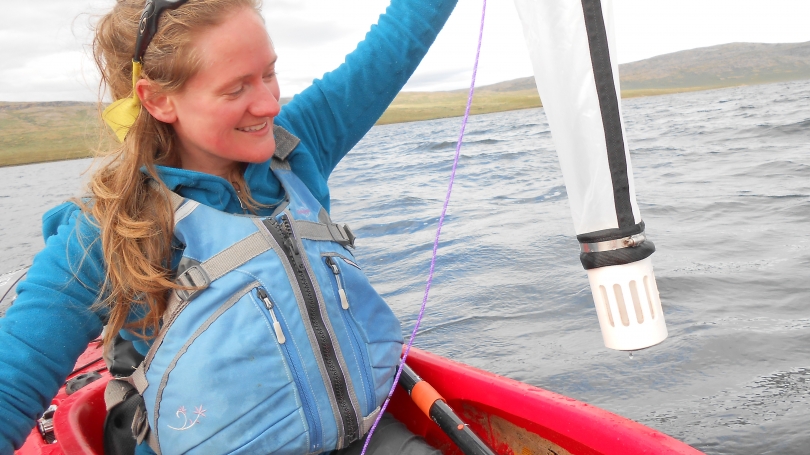
Menu
- About
- Programs
- Student Opportunities
- For Faculty
- News & Events
Back to Top Nav
Back to Top Nav
Back to Top Nav
Back to Top Nav
Back to Top Nav
Jessica Trout-Haney, Ph.D. Student, Ecology and Evolutionary Biology
Jess Trout-Haney studies how climate change affects high latitude aquatic ecosystems, specifically their physical, biochemical, and biological properties. She studies how differences in lake chemistry and morphometry of low-nutrient Arctic lakes affect the abundance of cyanobacteria and cyanotoxins in southwestern Greenland.
In the summer of 2013, Jess surveyed 19 lakes of varying size and depth between Kangerlussuaq and the Greenland Ice Sheet in southwestern Greenland. She ran sonar transects across each lake in order to generate maps of lake basins. Additionally, she collected lake water, phytoplankton, and zooplankton samples in order to examine how nutrients, species composition and cyanobacterial toxins vary among lakes.
Her preliminary results demonstrate that high-latitude lakes have the potential to support toxigenic cyanobacteria, and that activity in the benthos may be a significant contributor to both lake productivity and toxicity. Cyanobacterial blooms are of increasing ecological and economic concern worldwide, because they threaten the health of aquatic food webs and the safe use of freshwater for recreation and drinking water supply.
YouTube: Jessica Trout-Haney is featured in the viral video "Science in Greenland: It's a Girl Thing"
YouTube: Jessica Trout-Haney talks about cyanobacteria in lakes in Greenland